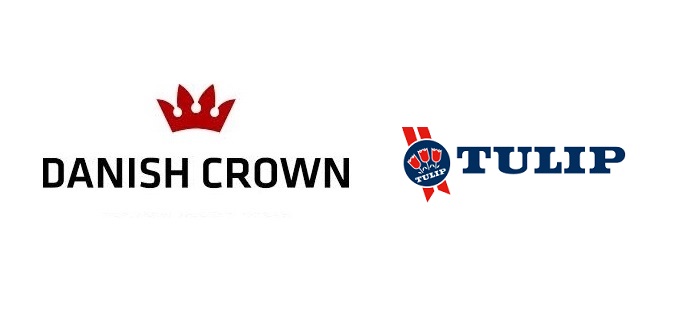Danish Crown has announced it will be cutting up to 400 jobs across the group, as its UK arm, Tulip, continues to under-perform.
In an announcement on Wednesday, the Danish meat giant said it was now intensifying the group’s cost-savings programme and would be looking to reduce its total costs by 350 million DKK (£41m) this financial year.
It didn’t specify exactly where the cuts would fall, but it is clear that Tulip will bear much of the brunt. In November, Danish Crown announced 150 immediate job losses, plus a 200m DKK (£23m) savings programme for Tulip in the 2018/19 financial year. This was after Tulip posted a net operating loss of 260m DKK (£31m) for 2017/18, following a loss of 231m DKK (£27.4m) last year.
In Wednesday’s statement, Danish Crown’s said its earnings were still challenged by problems in the UK business as well as under-performance in some other business units.
“This means that it is now necessary to initiate further cost savings across the group,” group CEO Jais Valeur said.
“We’re implementing measures now to keep us on track to achieve the budgeted profit for the year. Unfortunately, this means that we’re having to cut between 300 and 400 jobs across the group.
“We’re maintaining the hiring freeze initiated in November 2018 as well as a freeze on the use of consultants for the time being and, while investment in the business continues, we are in the process of identifying projects that could be postponed.”
“In recent months, we have won several important contracts in the UK, so in terms of sales, things are moving in the right direction. However, this does not change the fact that our costs are still too high, so further reductions are being considered as part of a comprehensive programme to improve operational efficiencies at Tulip.”
Danish Crown employs 29,000 people globally, including 7,000 in UK.
Meanwhile, in Denmark, the Tulip Food Company is also being affected by the fierce competition in the Danish retail sector, while earnings in the group’s largest business area, Danish Crown Pork, are not living up to expectations. However, the companies which have been acquired in Denmark, Poland and the Netherlands are all performing above expectations, Mr Valeur added.
“Right now, we don’t have the competitiveness that we’re striving to achieve compared to the EU index. This is primarily due to the particular challenges we’re facing in the UK, but the tough battle for pigs in Germany, and the advance of the Spanish abattoirs is not helping either. At the same time, we are faced with the fundamental challenge that costs in Denmark are significantly higher than in the countries we compete with. Therefore, all parts of our business must deliver in order to ensure competitive prices for our owners,” he said.
He added that prices for fresh pork in Europe are currently being held back by concerns about the spread of African Swine Fever, first and foremost in France.” As a result, all the abattoirs in central Europe are selling all their meat fresh, while also clearing their stocks at a time of year when they would normally be building them up,” he said.




